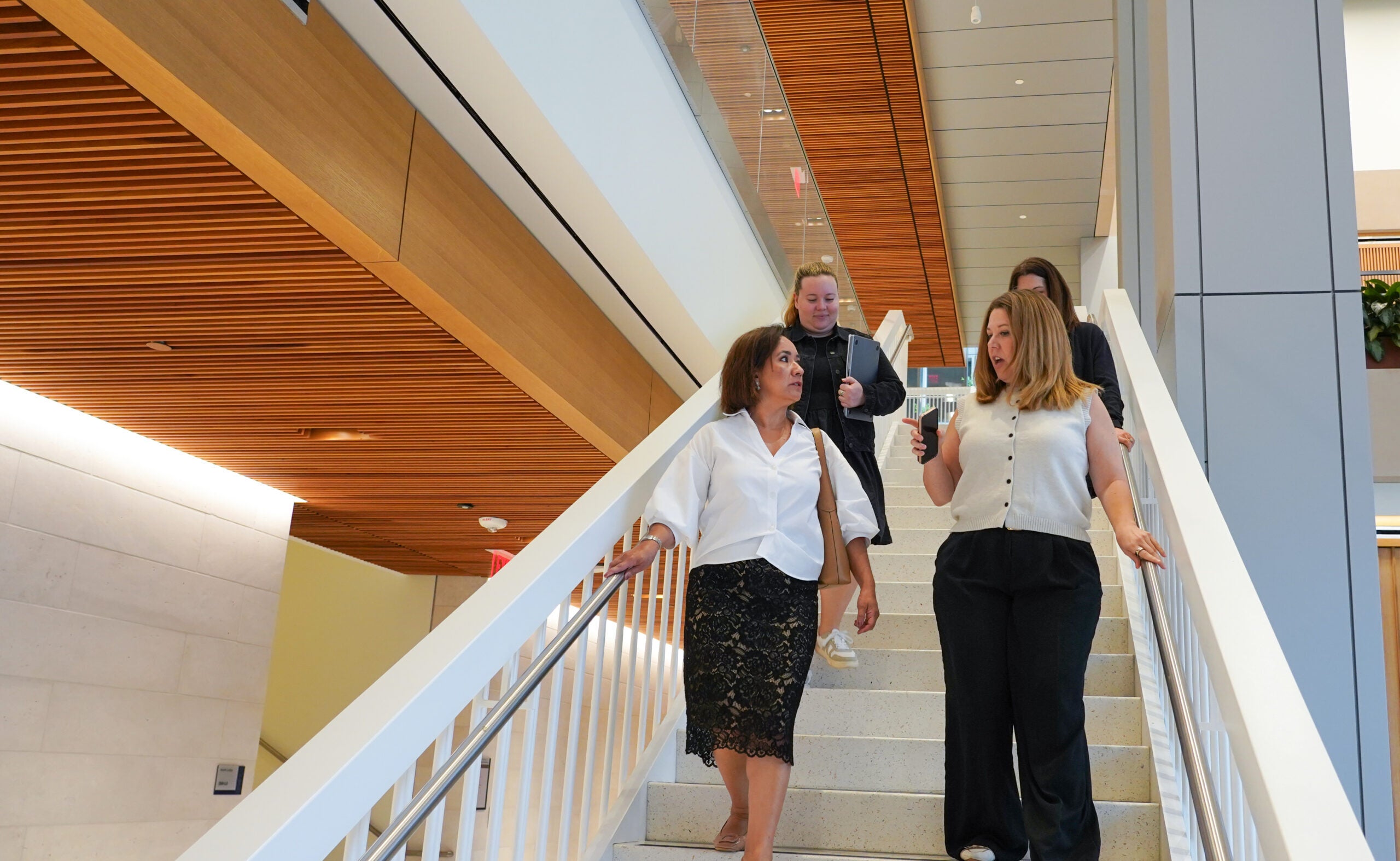Leading through uncertainty: McCourt’s Executive Master’s program trains vision-driven policy leaders
The McCourt School of Public Policy’s Executive Master in Policy Leadership prepares senior leaders to tackle complex policy challenges with clarity, vision and skill through effective and ethical leadership.
The McCourt School of Public Policy’s redesigned Executive Master in Policy Leadership (EMPL) is equipping experienced professionals with the skills needed to envision and drive mission-driven public policy. The 30-credit, 15-month program located in the heart of the nation’s capital combines in-person class sessions, experiential learning, and a cohort model. This is bolstered by relevant elective options, providing experienced practitioners with a blend of learning opportunities designed to accelerate their careers as they transition from management into leadership roles. The program also provides students with access to leadership mentors as well as in-classroom engagement with established leaders from key institutions advancing public policy in Washington, DC.
Chloe Schwenke, faculty director of the EMPL program, who brings her wealth of experience as an international development ethicist, human rights activist, researcher and educator, highlights how the EMPL program pushes students to think beyond just understanding how public policy is made. Under her direction, EMPL’s goal is to help them cultivate a compelling vision-driven and ethical approach to becoming an effective public policy leader.
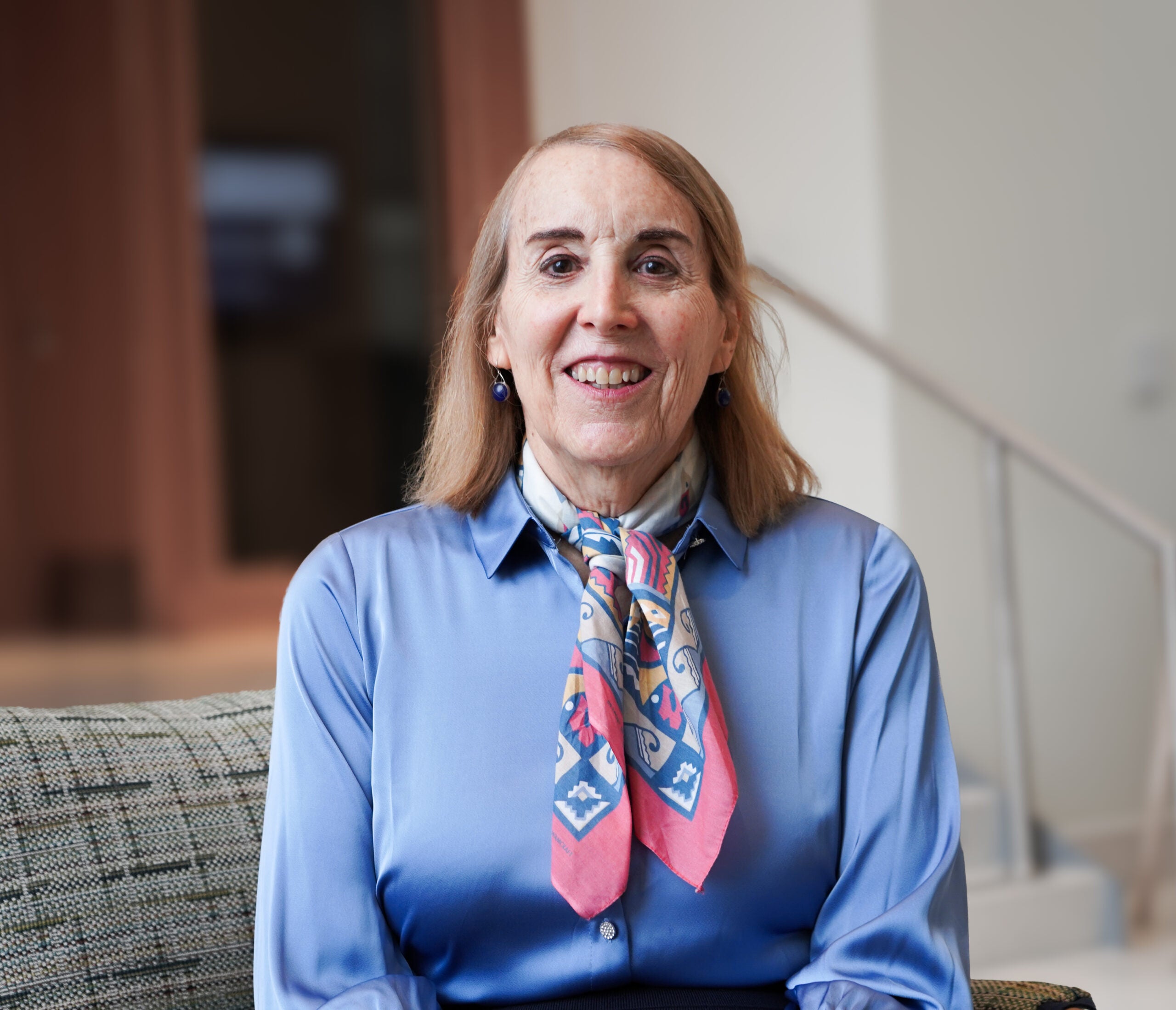
Chloe Schwenke, EMPL faculty director.
“The EMPL program focuses on what leaders need to have, and that is a vision,” says Schwenke. “We’re cultivating in each EMPL student clarity of vision by getting to the core of what they want to change — and making that argument persuasive. Our students master the essential policy and communication skills, and the critical relationship dynamics of leadership and followership. EMPL leaders will complete this program with the confidence that they can walk into any policy room, command respect and generate opportunity. But they’re also learning to probe deeper — to ask how policies affect communities and those whose voices are missing from the public policy discourse. We’re taking that extra step.”
Schwenke, who served as a political appointee at the United States Agency for International Development during the Obama Administration, and later founded and led her own non-governmental organization, uniquely understands the skills needed for policy leaders to succeed in high-stakes environments. One example is the program’s emphasis on the leadership speech — a key component of the program’s capstone, in which students present a persuasive address on a policy stance of their choosing to exhort stakeholders to act in the public good. Schwenke’s professional journey and vast career experiences also reflect the real-world complexity that EMPL students are being prepared to navigate and communicate through as senior policy professionals.
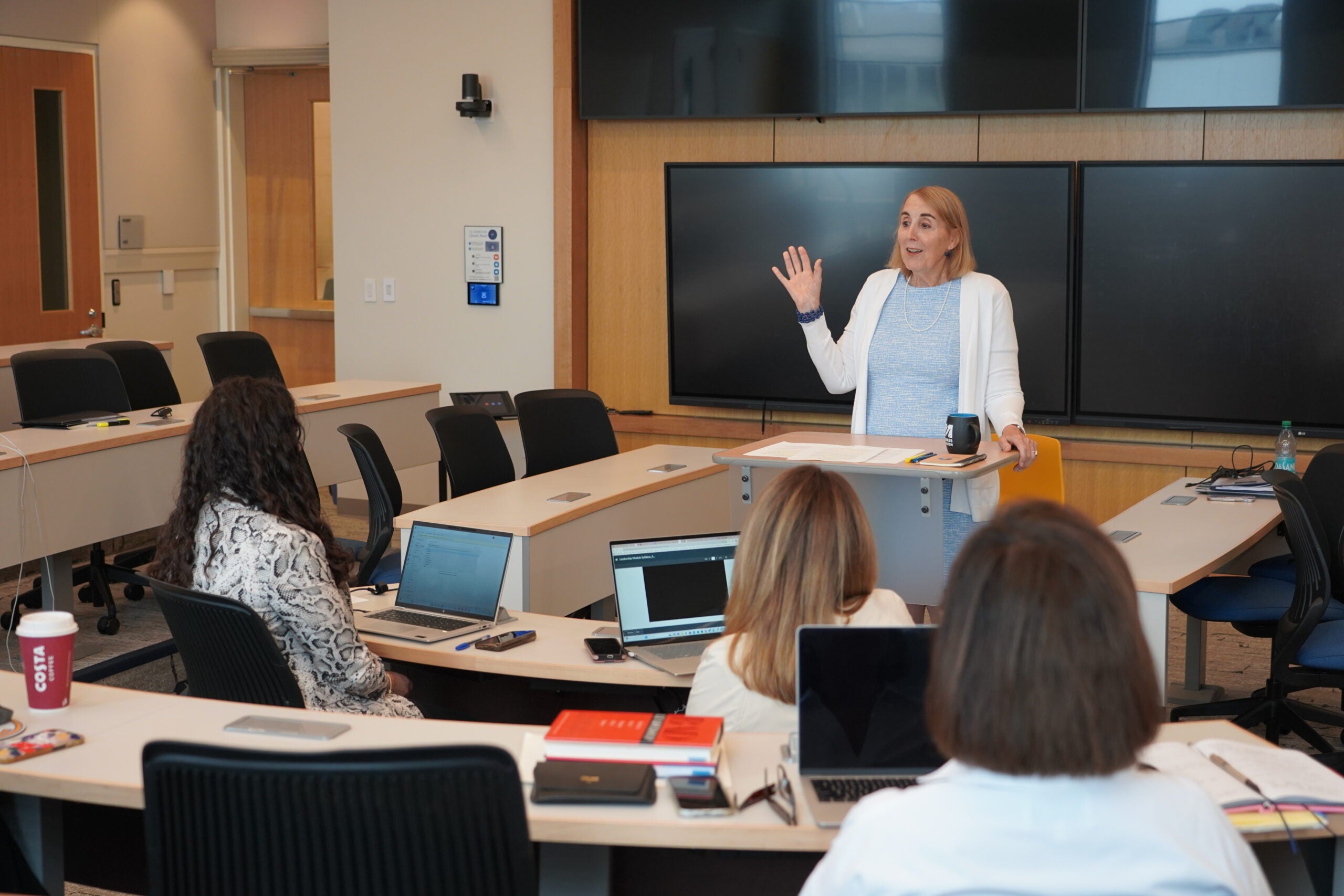
Chloe Schwenke, EMPL faculty director, teaches students in the executive master’s program.
“People only give you 15 minutes to convince them of your policy stance in this world. You’ve got to be ready to make your case persuasively. EMPL prepares you to be ready.”
Chloe Schwenke
Bringing together leaders from diverse industries
An oncologist. A venture capitalist. A military officer. The EMPL program brings together accomplished professionals from senior management and professional positions across industries in small, intentionally designed cohorts that foster collaboration and leadership growth. By learning alongside peers with diverse experiences, students sharpen the skills needed to lead effectively and ethically in today’s complex policy landscape, while also building lifelong networks.
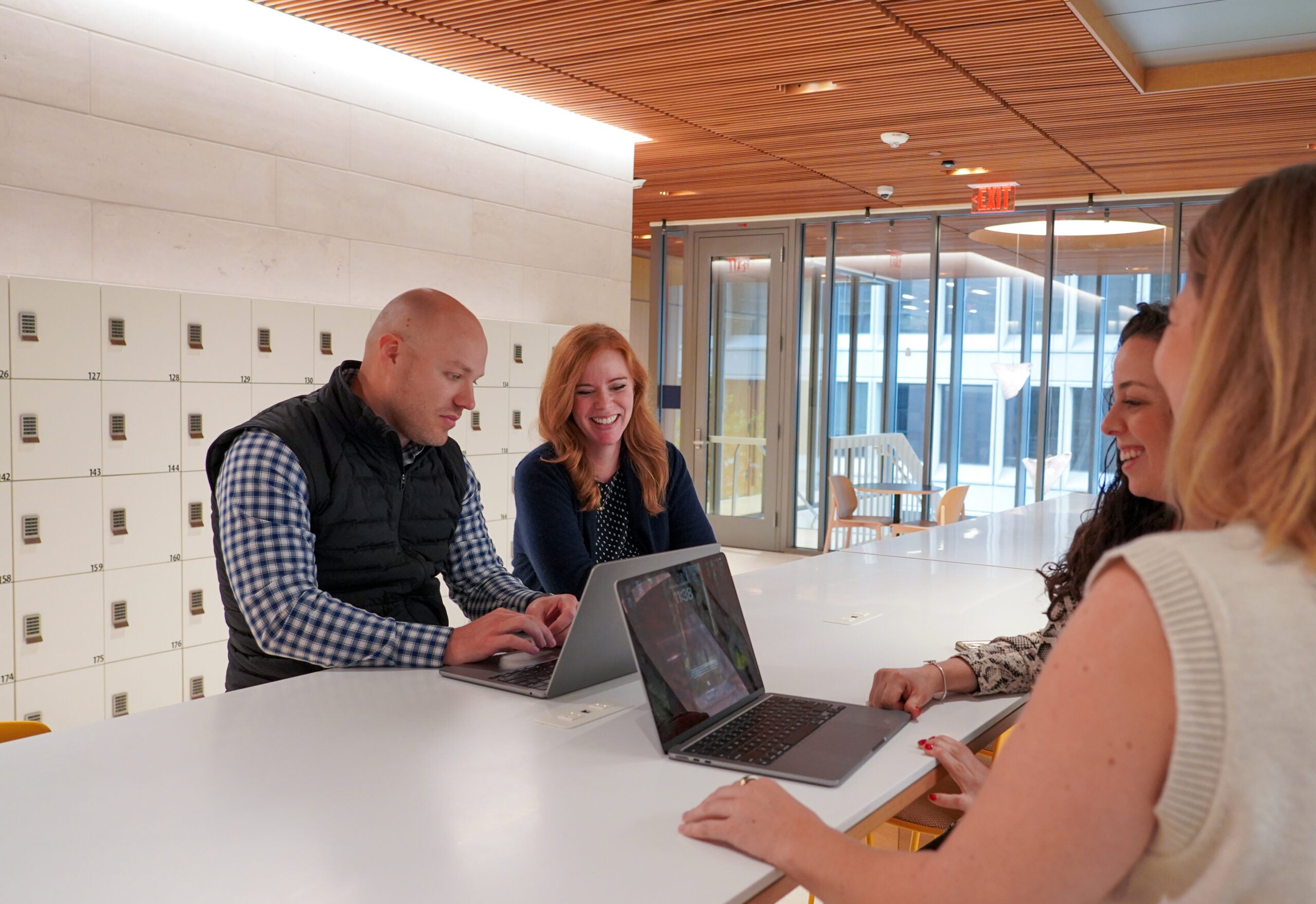
A group of EMPL students collaborate.
Graduates of the program emerge to lead at the highest levels across several industries and sectors, including federal, state and local government, civil society organizations, in the private sector, and in social justice movements.
Meet our current Executive Master in Policy Leadership students
Wade Swenson (EMPL’26), MD, MPH, MBA

Wade Swenson (EMPL’26)
Based in Waconia, Minnesota, Dr. Wade Swenson is an oncologist and hematologist, as well as the medical director of the Lakewood Health Center, a rural healthcare clinic. Swenson, a fellow of the American College of Physicians, was drawn to the ever-changing fields of oncology and hematology because of the promise of improved therapies, the relationship between physicians and patients and the trust required to make important treatment decisions. In addition to his M.D. from the University of North Dakota, Swenson also holds an MBA from the University of St. Thomas and an MPH in public health from the University of Iowa. He is also a Presidential Leadership Scholar and the founder of the Rural Cancer Institute, a non-profit based in Minnesota focused on raising awareness of rural cancer care disparities throughout the country and promoting research, policy and best practices to close the rural cancer treatment gap.
Swenson is particularly interested in rural healthcare policy and how public policy can serve as a vessel for more equitable access to healthcare in rural communities.
“The EMPL program is equipping me with practical skills in policy analysis and communication that are crucial for tackling rural healthcare issues,” says Dr. Wade Swenson. “For example, it’s teaching me policy strategies while also emphasizing coalition building through partnerships with a wide variety of stakeholders with an interest in rural healthcare. The program explores the politics of policy, helping me understand how to navigate partisan divides and lobby for reforms, such as expanded broadband for telehealth in underserved areas. The connections I’m forging with fellow policy professionals will be a significant asset for sustaining these efforts in the long term.” – Dr. Wade Swenson (EMPL’26)
Jennifer Ross (EMPL’26), MBA, MA

Jennifer Ross (EMPL’26)
Jennifer Ross was a service member for 20 years in the US Air Force, where she served as an intelligence specialist. She currently works as a federal policy manager at the Iraq and Afghanistan Veterans of America, where she supports the organization’s policy and advocacy goals. Previously, she was the program director at Veterans Upward Bound, a college preparatory program for eligible veterans at the Catholic University of America. She has an MBA from Cornell University, an M.A. in organizational behavior from UMass Global and a B.A. in applied intelligence. Ross is passionate about holistic support services and policies designed to bridge the gap between military and civilian life.
“When I discovered the EMPL program, it immediately stood out as the right fit,” says Jennifer Ross. “The curriculum’s focus on real-world policy challenges, grounded in academic theory and enriched by practical case studies, has been deeply engaging. What truly sets the program apart is the depth of classroom dialogue, driven by the diverse professional experiences of our cohort. Each student brings a unique perspective that bridges policy, leadership and often business — creating a rich environment for meaningful discussion and applied learning. This intersection of academic insight, practical relevance and peer exchange has made my time in the EMPL program not only intellectually rewarding but also personally and professionally fulfilling.” – Jennifer Ross (EMPL’26)
A curriculum designed for real-world impact
Through case studies, the program emphasizes going beyond theory, immersing students in case studies to illustrate how leaders navigate challenges, create opportunities and forge lasting policy impact.

EMPL students participate in the classroom.
Daniel Kelemen, associate dean of faculty for the McCourt School, highlights how the program’s curriculum aims to put students in the shoes of leading policy leaders.
“Through our case study approach, students learn from the experiences of policy reformers in the US and around the world — seeing the challenges they encountered and how they overcame them — or sometimes failed to do so,” says Kelemen. “Second, we give them a set of tools and templates they might deploy to think systematically about the impediments to reform they are likely to face, and how to overcome them.”
More than a degree, EMPL is designed to serve as both a launchpad and an accelerator — preparing senior leaders to drive thoughtful, mission-driven change in public policy. Learn more about the program here.
Request More Information
Take your next step toward driving impactful change in public policy with the Executive Master of Policy Leadership.
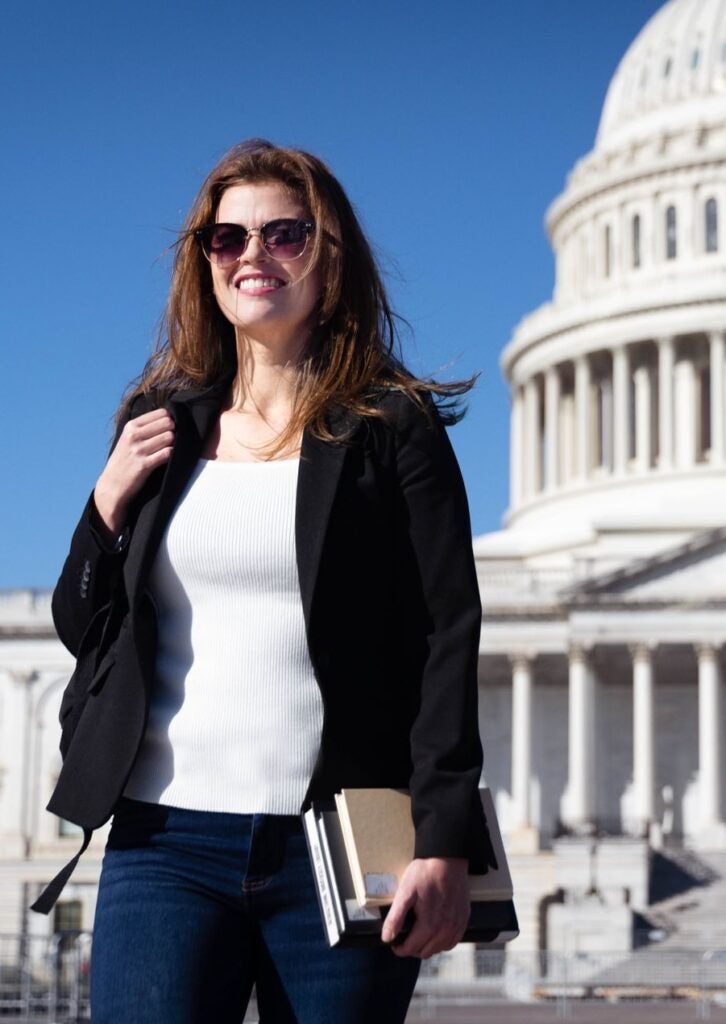
- Tagged
- EMPL
- Student Experiences
